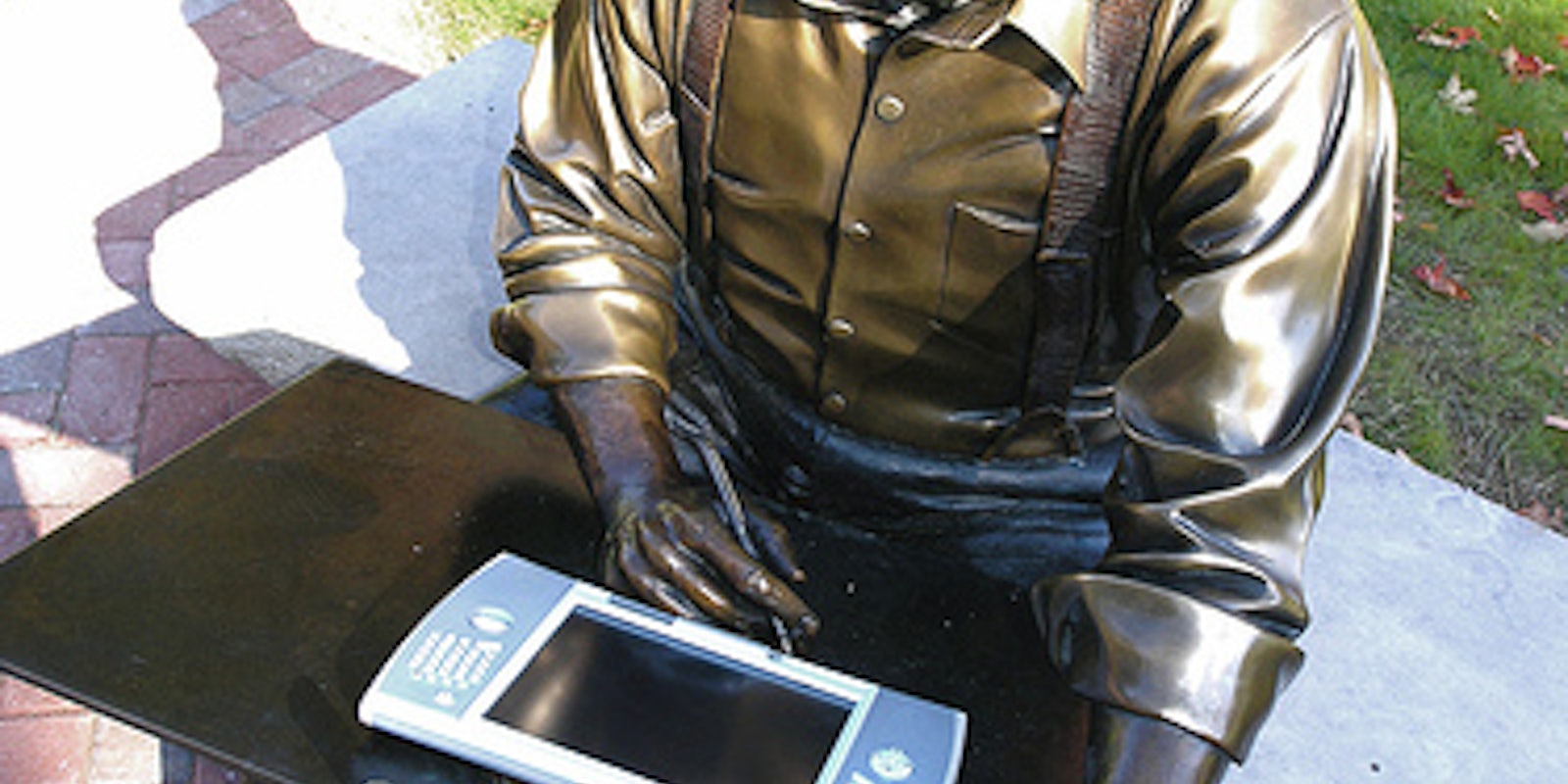Where do you belong? And to whom?
It’s a question we wrestle with every day, and when we form connections online, the possibilities and permutations explode.
When it’s time to simplify, Robert Frost’s a pretty good guy to turn to:
“Don’t join too many gangs. Join few if any.”
…
Frost penned those lines some fourscore years ago, in a time when gangs seemed a less dangerous thing than, say, Anonymous, the hacker collective targeting everyone from Kreayshawn to Mark Zuckerberg.
I don’t think America’s poet laureate anticipated gangs like Los Zetas, a murderous drug cartel in Mexico who may be the only people Anonymous actually fears.
…
No, Frost meant something altogether different when he wrote of gangs in his 1932 poem, Build Soil:
“Join the United States and join the family / But not much in between unless a college.”
Such advice seems impossible to follow these days. The tribes we join inhabit Frost’s forbidden spaces in between households, schools, and nation-states.
We bond with coworkers. We follow people on Twitter. We connect in the comments of media sites. We Occupy; we Tea Party. We join Facebook groups. We become part of a fandom. We subscribe to YouTube channels.
…
Poetics aside, the difference between today’s gangs and those of Frost’s era is the barrier to entry. Ganging up was a declaration of lifelong fealty. You didn’t join a gang, in any sense, lightly.
Today’s digital gangs don’t require much. To be Anonymous, for example, you simply don the mask (and, perhaps, doff your clothes).
…
When we first launched the Daily Dot, we wanted to reinvent the journalistic dateline. We even considered embedding reporters within specific online communities.
What we realized was that while Facebook may be larger than most countries, it doesn’t have the rigid boundaries of a nation. Every online community is just one click away, and none demand your exclusive loyalty.
Redditors go crazy over YouTube videos. YouTubers sing about Tumblr. Tumblrers reblog posts about video games. Video games celebrate YouTube phenoms.
…
Such virtual promiscuity perplexes business people, of course, who seek control. Too bad! That’s why I’m not worried about the supposed battle between Facebook and Google for the future of the Web—whatever that means.
Sure, Larry Page and Sergey Brin would like you to dump Mark Zuckerberg’s 800-million-member gang for their shiny new one. And some people may switch off, or flit between them. But based on what I see of people’s behavior online, I just don’t think we’re ready to give that much of ourselves away to any one place on the Web.
If we stick to the Frostian definition, the Web is the only gang we should join, the larger community we long to belong to.
Photo by MisterBisson
